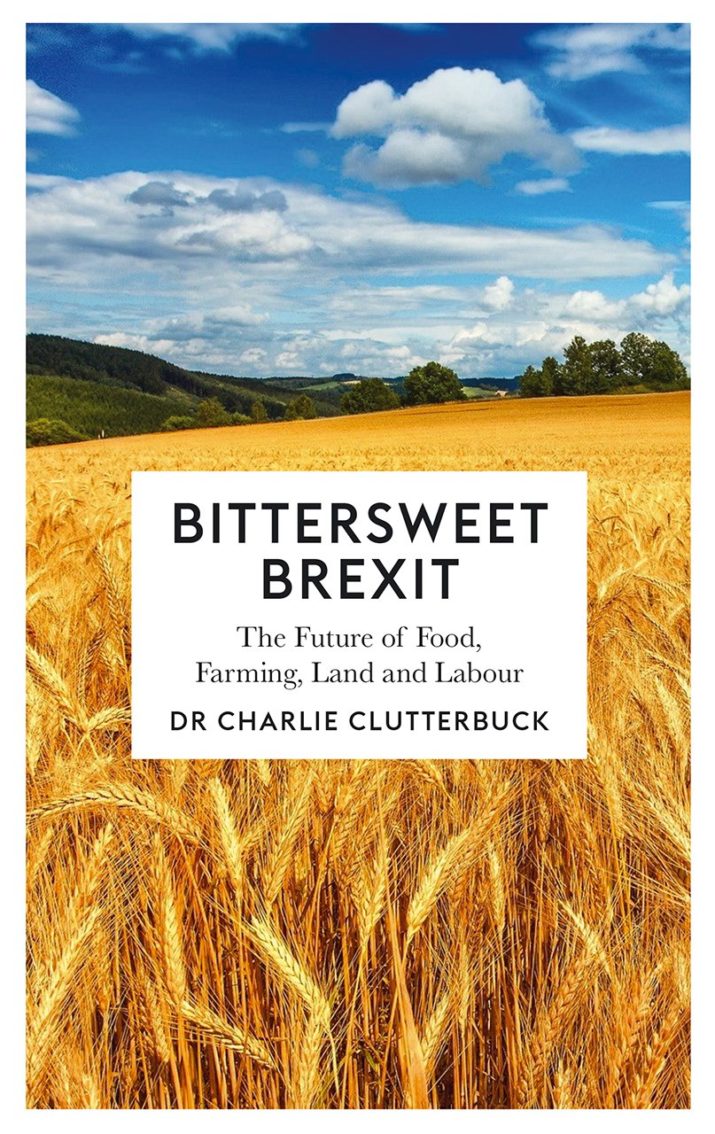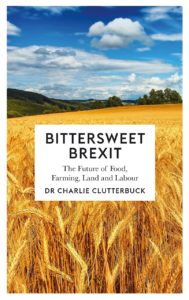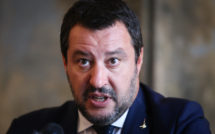

Back in 2017, writing a book about Brexit’s likely impacts on the food system must have seemed a bittersweet endeavor: it was reasonable to expect that much of its commentary would be obsolete soon after publication. It is the author’s good luck (but the misfortune of the rest of us) that two years later (in mid-January 2019), with less than three months to go till the legally binding exit date, so much of the book still holds true. We are not much clearer about what the UK’s food system (and a lot of other things) will look like after March 29, 2019 than we were on June 23, 2016, the day of the referendum on UK membership of the European Union, when 52 percent of voters chose Leave, against 48 percent for Remain. Amid the uncertainty, anguish, and outrage that have engulfed the nation since (on both sides but for different reasons) there prevails, at least among policy watchers, a sense of disbelief that in a country with a long-established system of stable government and seemingly strong and capable institutions, we find ourselves, on this defining issue, apparently ungovernable.
Surprisingly, given how important it is to daily life and the fate of governments, food hardly featured in discussions about Brexit before or immediately after the vote. That was one of Clutterbuck’s reasons for writing the book – he wanted to stimulate debate about “the sort of food and farming we want for our future” (xvi). Since then, “Food Brexit” has slowly made its way up the agenda. It has been recognized that the Customs Union and Single Market are not legal abstractions but arrangements with everyday applications to real life, and that leaving them could have swift, adverse consequences for, among other things, the functioning of food supply chains, just-in-time infrastructure, traffic through ports and across borders, export and import markets, the availability of foods and raw materials, costs and prices, food standards, environmental regulations, the supply of labor and (wrapping all this together) food security.
Thus, as Clutterbuck notes, food is likely to be one of the areas most affected by Brexit. A report by a parliamentary scrutiny committee in November 2018[i] (i.e., after the book was published) on “preparedness for Brexit” found that the Department for the Environment, Food and Rural Affairs (Defra) had the second-highest number of Brexit-related workstreams (43 out of around 300) in the whole of the government, with scores of pieces of legislation to draft and shepherd through parliament. Having seen its budget and workforce slashed over the previous decade, it has been given £400m+ in extra funding, and plans to hire 2,700 new staff by 2019. Ominously, four of its workstreams involve major, new-build IT systems. The committee found the department underprepared and complacent. It was especially concerned about the neglect of smaller businesses (with fewer than 250 employees), of which there were 6,700 in the food sector in 2017, employing 120,000 people.[ii] For many of these enterprises, the costs arising from supply-chain delays and new regulatory requirements could be fatal.
Clutterbuck provides a wide-ranging and, at times, prescient survey of these themes and issues. His table (230) of the various possible outcomes – stay in the Customs Union but leave the Single Market, stay in the Single Market but leave the Customs Union, the Turkey option, the Norway option, don’t leave at all – are still being discussed. By the author’s own admission, though, this book is not a sober, scholarly analysis. It has elements of memoir, polemic and stream-of-consciousness, and in places what must have been a hasty preparation process is evident. But it draws on the author’s varied, 40-year experience around food systems, which has taken in several degrees in soil science and agronomy; toil on farms and in kitchens; advisory roles to government committees, NGOs and major retailers; and a career as an academic and educator. His most long-standing affiliation is to the farmworkers’ union, now called Unite. This depth of knowledge, and the strength of his convictions, animate the book.
Clutterbuck is a Remainer, but he has many criticisms of the way food and farming have unfolded, both under the Common Agricultural Policy (CAP), which he thought was “crap” (5) and under the globalizing and privatizing policies of recent governments. Brexit offers an opportunity for remedy and transformation, and he has some suggestions. His main messages concern trade, land and labor.
On trade, he wants less of it. His argument here has its origins in a Damscene conversion he experienced while studying for his PhD in soil zoology. His whole education had been geared to helping farmers produce more, at a time (the 1980s) when Europe was amassing food mountains due to subsidized over-production and the TV news showed nightly pictures of charitable food deliveries to starving villagers in Africa. It was borne in upon Clutterbuck that inefficient distribution, not insufficient production, was the challenge: “People think the problem is that we need to produce more food. We don’t. We need to give the poor more money” (18). Flowing from this comes the conviction that we need to grow more food near to where it is eaten, and ensure that people can afford to buy it. The UK currently imports food worth around $66bn and exports around half as much by value, running up a food trade deficit of around $30bn a year. (More than a quarter of all the food consumed in Britain comes from the EU.) Admittedly, the UK can’t produce its own oranges and bananas, but it could surely grow more vegetables, soft fruits and legumes. Clutterbuck wants to increase home production and decrease imports, reducing the food trade deficit to zero and freeing up the $30bn+ for other things. Like many others, though, he is stronger on theory than method here.
He is disdainful of Brexiters’ arguments that food producers will be better off once the UK can trade freely with the rest of the world, especially with its former colonies, a project sometimes referred to as Empire 2.0 (50). He highlights the double hazard facing British producers: high tariffs keeping them out of their main export markets, while cheap food is imported via trade deals from lower-cost producers. “Time and again we bow to the god of free trade,” he writes, but it does nothing to help the environment, farmers, health or the long-term wellbeing of the nation; instead it enriches speculators – “people willing to gamble on food” (63). Paradoxically, many farmers (and fishers) voted for Brexit, partly out of frustration with the CAP and the Common Fisheries Policy. For many farmers, across all farm sizes and types, the CAP subsidy made the difference between profit and loss. It is hard to see how Brexit will help them.
His second important message concerns food system labor, which he rightly says is often overlooked, despite the fact that the food sector employs 12 percent of all British workers. Food workers are among the poorest paid in the labor force, whether in field or in factory; their terms of employment are often precarious, and farms are dangerous places to work. Many food workers are migrants, predominantly from other European countries: contrary to the impression that they do only unskilled, seasonal work picking crops, they are found at all stages of the supply chain, doing jobs with various skill levels. In 2015, the sector with the highest share of foreign-born workers (41 percent) was food manufacturing. Food industry trade associations protested vociferously when they feared Brexit might cut off their supply of labor. Clutterbuck points out that the same organizations had not defended their workers when an English institution called the Agricultural Wages Board, which protected farm workers’ pay levels, was abolished a few years ago. His novel proposal here is to pay whatever replaces CAP subsidies not to land owners, as before, but to food workers. This, he says, would enable producers to pay food workers a decent wage without having to put up food prices.
And finally, land, by which he mainly means soil. This is his passion – he even talks about “my theory of soil evolution” (126). Soil has been willfully neglected – the UK blocked EU efforts to introduce a Directive on soil management a few years back. Now it is being eroded and contaminated, and the arable fields are losing carbon. Why? Clutterbuck thinks that herbicides, by removing weed cover, eliminate a multitude of tiny carbon stores. “Can somebody check my calculations?” he pleads. “Government should have done this already” (135). He lists (and laments) the 23 land-based research stations that have been closed since 1990 (131) and notes that bio-scientists stand to lose £1bn a year of funds from the EU. Research should be publically funded, soil conserved, and schemes for environmental protection and climate mitigation should be kept separate from farm (i.e. farm worker) subsidies, to be run by mixed partnerships at local level, to avoid the problem of reliance on individual farmers.
Since Brexit happened, many publications have appeared – including from my own organization – which take advantage of this “unfrozen moment” to promote visions of a different and better (more healthy, more equitable, more environmentally regenerative) food system. These blueprints often display a kind of utopianism, concluding with lists of “shoulds” for government that go far beyond the immediate challenge of leaving the European Union. Bittersweet Brexit is not free from this trait – at one point, Clutterbuck says “our whole way of life is up for debate” (216). But it is also informed, compassionate and exuberant.
Reviewed by Rosalind Sharpe, Centre for Food Policy, City University of London
Bittersweet Brexit: The Future of Food, Farming, Land and Labour
By Charlie Clutterbuck
Paperback / 262 pages / 2017
Publisher: Pluto Press
US Distributor: University of Chicago Press
ISBN: 978-0-7453-3770-8
To read more book reviews click here
Published on February 5, 2019.
Click here for our special feature on Food, Food Systems, and Agriculture.
References:
[i] House of Commons Committee of Public Accounts (2018) Defra’s progress towards Brexit. Sixty-Eighth Report of Session 2017–19. https://publications.parliament.uk/pa/cm201719/cmselect/cmpubacc/1514/1514.pdf
[ii] Defra (2017) Food Statistics Pocketbook 2017, https://www.gov.uk/government/statistics/food-statistics-pocketbook-2017, viewed 21.01.19.




